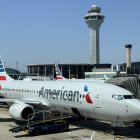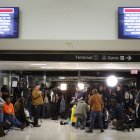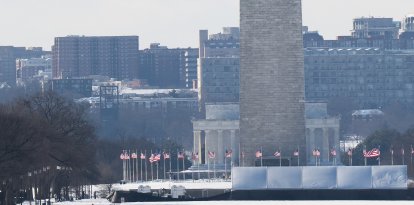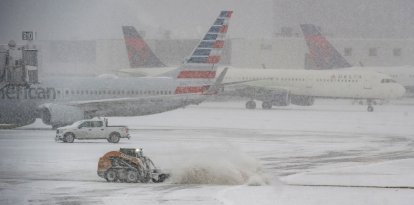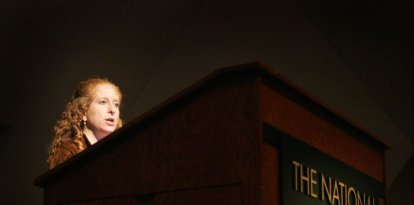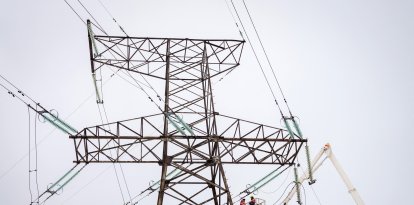Newark Airport air traffic controllers lose radar access for second time in two weeks
White House press secretary Karoline Leavitt said: "Everything went back online after the brief outage, and there was no operational impact.”

737 aircraft (File) / Jason Redmond
For the second time in less than two weeks, air traffic controllers managing flights at Newark Liberty International Airport in New Jersey faced a critical disruption to their radar systems.
The Federal Aviation Administration (FAA) reported Friday at 3:55 a.m. ET that the radar at the Philadelphia facility, which directs aircraft entering and departing Newark, went dark for approximately 90 seconds.
This incident is similar to the one that occurred on April 28, which triggered hundreds of cancellations and delays at one of the busiest airports in the United States.
For her part, White House press secretary Karoline Leavitt said during a briefing Friday that “everything went back online after the brief outage, and there was no operational impact.”
Causes: obsolete technology and staffing shortages
Representative Josh Gottheimer, at a press conference Friday, attributed the recurring problems at Newark to two main factors: lack of adequate staffing and the use of outdated technology.
Gottheimer noted that the Philadelphia facility, which controls Newark's airspace, has only about 20 air traffic controllers, when it should have about 60.
In addition, he noted that many of the lines connecting controllers to radar are outdated copper wires, one of which burned during the April 28 outage.
“Our region is a key economic artery for our country. Yet this region... one of the busiest air spaces in the world, as I mentioned, is running off a tower that’s full of copper wire dating back to the 1980s with outdated and inefficient technology,” Gottheimer said, the Washington Post reports.
"The region is short about 40 air traffic controllers.”
The congressman also mentioned that the control tower was built in 1973, underscoring the age of the infrastructure.
FAA response and modernization plans
The FAA has acknowledged the shortcomings of its air traffic control system, describing it as “antiquated.”
FAA statement about @EWRairport flight operations:
— The FAA ✈️ (@FAANews) May 5, 2025
Our antiquated air traffic control system is affecting our workforce. As @SecDuffy has said, we must get the best safety technology in the hands of controllers as soon as possible. We are working to ensure the current…
In response to Friday's incident, the agency said it is installing new fiber-optic data lines to replace copper cables connecting its facilities in Philadelphia and New York.
These lines seek to improve speed, reliability and redundancy in radar data transmission.
Meanwhile, Transportation Secretary Sean Duffy announced a multi-million dollar plan to modernize the nation's air traffic control system. On his X account, the Republican noted:
“No more replacing floppy disks and other antiquated parts so old you can only find them on eBay. It’s time for a brand new air traffic control system that makes our country proud. Thank you @POTUS for your leadership! Now it’s time to get to work and make American air travel great again”
No more replacing floppy disks and other antiquated parts so old you can only find them on eBay.
— Secretary Sean Duffy (@SecDuffy) May 9, 2025
It’s time for a brand new air traffic control system that makes our country proud.
Thank you @POTUS for your leadership! Now it’s time to get to work and make American air travel… pic.twitter.com/dn3RqTx9kr
The plan includes the installation of 4,600 new high-speed connections and the replacement of 618 radars across the country, at an estimated cost of $12.5 billion and a timeline of three to four years, subject to congressional approval of funds.
Duffy linked the urgency of these improvements to incidents such as those in Newark and a deadly mid-air collision in January of this year between an airliner and a military helicopter in Washington, DC that left 67 victims.
Calls for action
The problems in Newark are not isolated. The FAA faces a national shortage of approximately 3,000 air traffic controllers, and the Philadelphia facility, which took over control of Newark airspace from Long Island in 2024 to address hiring problems, has been under a lot of pressure.
A combination of outdated technology, such as copper wires and nearly 40-year-old radar, and a lack of staff has created a "fragile" system, according to New Jersey's Governor Phil Murphy.
Rep. Mikie Sherrill, Democrat from New Jersey, called the radar outages "unacceptable" and called on the Trump administration to send immediate resources to upgrade the FAA's infrastructure.
Air traffic controllers for EWR lost radar again for 90 seconds this morning. I've been saying it all week and I'll say it again: @SecDuffy needs to act NOW because this is unacceptable and extremely dangerous. https://t.co/yb9ipjbz1m
— Mikie Sherrill (@MikieSherrill) May 9, 2025
For its part, United Airlines, the largest operator at Newark, has reduced its schedule at the airport, eliminating 35 daily flights since May 4.
United's CEO Scott Kirby, stated that "flights at Newark are absolutely safe," but he acknowledged that the airport "cannot handle the number of aircraft scheduled in the coming weeks and months" due to staffing and technology problems.





